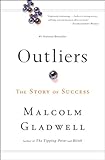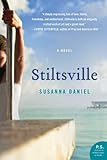I wish I could avoid mistakes, but the more I try the more mistakes appear on the page. If I didn’t have a spell checker, you would see all of my mistakes. There are several things you can do with mistakes. First, the most obvious: correct them.
more mistakes appear on the page. If I didn’t have a spell checker, you would see all of my mistakes. There are several things you can do with mistakes. First, the most obvious: correct them.
Oh, if only we could. Sometimes our life mistakes do irremediable harm. If you kill someone, you cannot unkill them. If you burn a priceless piece of art or destroy a sculpture, the result is art forever lost.
Two years ago, my dog broke my ring finger (due to my mistake, but that is the story for another day). An artisan had created my silver wedding ring. On the day following the break, the ring had to be cut from my finger. Now, two years later, my finger is the size it will always be and I want to have the ring repaired, but I cannot find it. All I know is that I put it somewhere in my house, but not with my other jewelry. A mistake, but one that will be remedied someday when I clean house and find the missing ring.
I, and others, make mistakes when we write. Whether we’re writing a novel, a short story, an essay, or a poem, a word out of position can seriously damage a sentence. Consider the following:
- She ate 3 bagels.
- She ate only 3 bagels.
- Only she ate 3 bagels.
- She ate 3 bagels only.
- She never ate 3 bagels.
The second sentence indicates that there were more than 3 bagels but she limited herself to 3, or that she was accustomed to eating more, but limited herself. The third sentence tells us that the others ate a greater number or fewer bagels than she did, and the fourth tells us that she ate nothing other than three bagels. The fifth may be ambiguous. Did she eat one or two bagels? Did she eat 4 or more bagels? All we know is that she did not eat 3. The change of one word, changes the entire meaning.
An improper word can crush a Facebook friend or Twitter follower or cast someone in a bad light. For an example follow the story of the death of Trayvon Martin. Perhaps inflated by the press, the story has many people ready to have George Zimmerman convicted without a trial. They call him a criminal, when no court has yet determined whether what occurred is a crime and whether he is guilty.
Did George Zimmerman make an irremediable mistake or did he intend to kill Trayvon Martin? That is what the law must decide.
What it all comes down to is how do we deal with mistakes? Do we punish ourselves for our own mistakes, both great and trivial? Do we punish others?
I don’t have all the answers, but I have a couple of words: mercy and grace. I am grateful that God, in his grace and mercy, does not hold my mistakes against me. Yes, there are consequences. An agent might ignore my novel after seeing my mistakes. A reader may stop reading. But I don’t stop writing and I don’t stop living, because as long as I live I will make mistakes, and by God’s mercy and grace I keep going.
I ask for justice for Trayvon Martin, whatever form that justice may take. I ask for mercy for George Zimmerman, that his hasty act does not ruin another life. I ask God to grant grace and mercy to both families and all affected by this tragedy.
I pray, also, that we can set aside the minor mistakes that we and others make and give grace and mercy to ourselves and others. And if you find any mistakes in my blog, it’s OK. I know I make them, but this is only a blog and a mistake here and there is permissible.
By Ebyabe (Own work) [GFDL (www.gnu.org/copyleft/fdl.html)
















